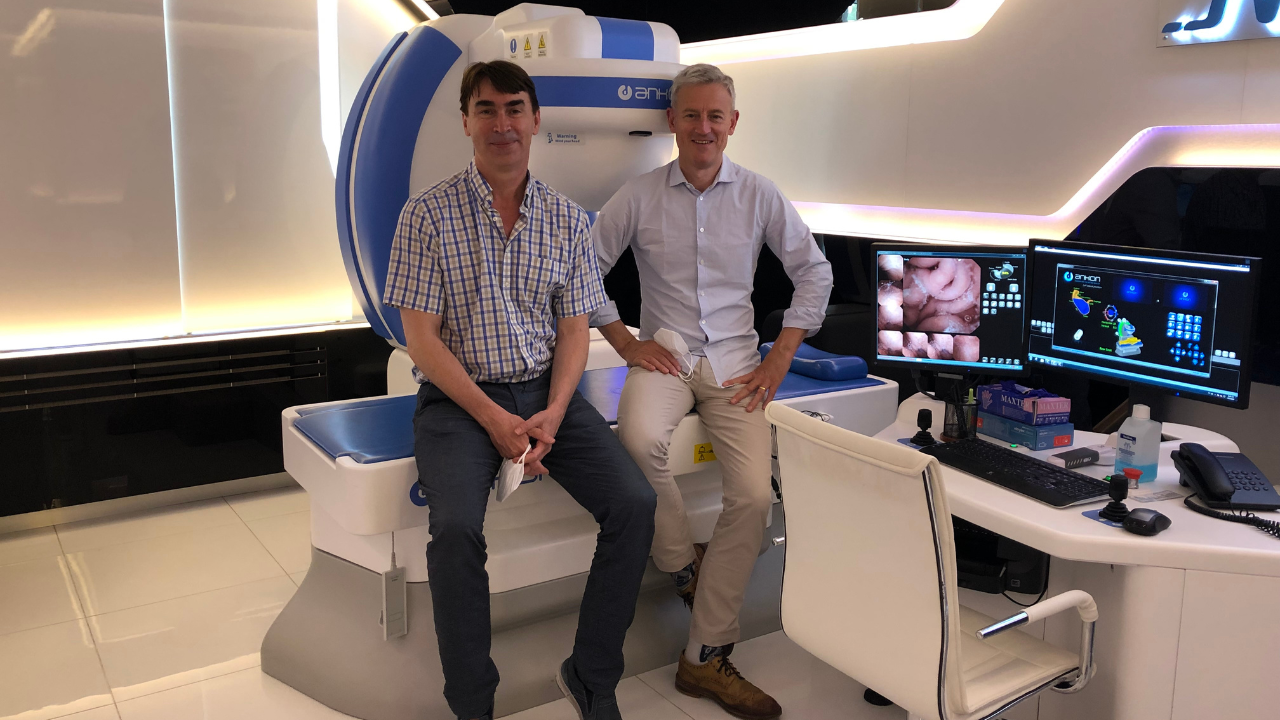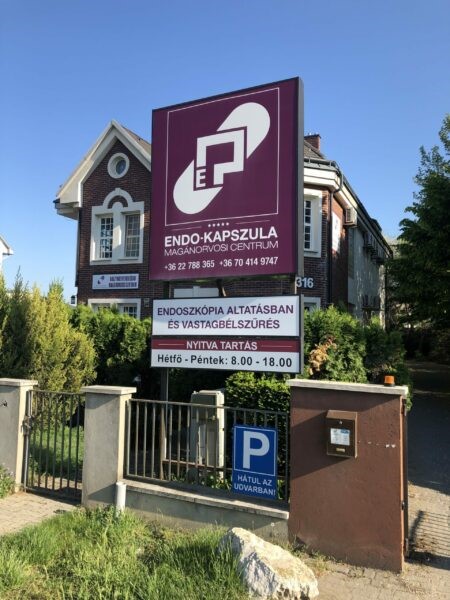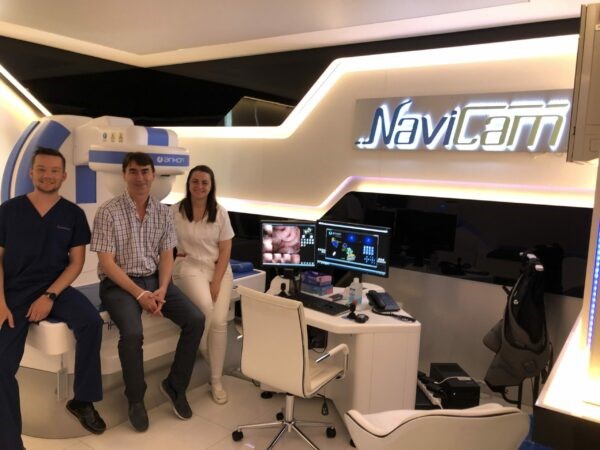
International Committee Project: Developing Training and Research for MAgnetic-controlled Capsule Endoscopy (TARMAC) for the UGI tract
A BSG International funded project undertaken by Professor Mark McAlindon and Dr Priya Oka, Sheffield Teaching Hospitals NHS Trust
The aim of the BSG International-funded project was to establish links between Professor Laszlo Madacsy and his team at Endo-Kapszula Maganorvosi Centrum in Szekesferhervar, Hungary and staff from Sheffield Teaching Hospitals NHS Trust. The team at Szekesferhervar is the second service in the Western hemisphere (after Sheffield) to develop a MAgnetic-controlled Capsule Endoscopy (MACE) to examine the upper GI tract and having performed over one thousand procedures is one which has the most practical experience outside of China.
The centre is a private medical centre established just over a decade ago, offering GI services which include consultations, endoscopy (upper, lower, ERCP, EUS and capsule endoscopy), ultrasound and recently installing a CT scanner and offering consultations in other medical specialties including cardiology and gynaecology. It is supported by Peter Zoldi, Business Manager and forty staff including other doctors, nursing, clerical, administrative and IT staff. There is a significant growth in private health care in Hungary although there is a state funded system.
Dr Oka visited Szekesferhervar in May 2022. She observed the functioning of a small private medical unit, spent time observing one or two MACE procedures daily with Dr Adam Finta (junior doctor on a PhD programme), received training on use of software and performed procedures. Discussions covered topics such as pre-procedure preparation (using water ingestion, simethicone and Pronase), the positioning of the patient during swallowing of a capsule, positioning of the magnet and use of the gyroscope, subsequent patient position changes and the use of automated examination protocols and magnet positioning. She also observed endoscopy (most performed using propofol sedation with anaesthetic support and using CAD-I AI software) and the day-to-day operations of the centre.
Professor McAlindon also visited the Endo-Kapszula Maganorvosi Centrum, to discuss shared practices in development, training, and research. He also gave a presentation to the Endo-Kapzsula team, as well as meeting a visiting gastroenterology team from Szeged. The presentation summarised research done in Sheffield, including work on patient acceptability of MACE compared with gastroscopy and transnasal endoscopy, cost analysis, progress of the Bleeding Location In The Gastrointestinal Tract (BLITGIT) study (Reference 1) and ongoing work in the development of ex-vivo training exercises as well as Cusum analysis of the work of novice MACE endoscopists.
Outcomes and achievements
Dr Oka has now completed her training on the ex-vivo models and Cusum analysis suggests that she has reached competence. The preliminary training she received in Hungary was a formative experience in her becoming an independent practitioner.
The MACE examination protocol in Sheffield is being amended to include the use of the automated programmes in addition to manual control, something of which they were not previously aware - a wonderful way of demonstrating the power of international shared learning.
Colleagues from both Szekesferhervar and Szeged now wish to contribute to the Cusum analysis of performance of the exercises by novices. They will share videos of the exercises, instructions on performance and data collection and it is hoped that the outcomes of the collaboration could be published and form the basis of future training programmes. In respect of the BLITGIT study, staff in Szekesferhervar would continue to recruit patients seen in their own centre as well as those seen in Szeged who could be sent to them for capsule endoscopy in the week before their booked (conventional) endoscopic procedures.
Visiting an eastern European country with a history and culture that is quite different from western Europe was an experience. More importantly, the shared experiences and practices in Sheffield, Szekesferhervar, and the professional contacts made will hopefully lead to new collaborations.
Reference 1
Current guidelines recommend only upper and lower GI endoscopy to investigate patients with iron deficiency anaemia who do not routinely have a small bowel investigation. Bleeding Location In The Gastrointestinal Tract (BLITGIT) is a three-centre study (Sheffield, Szekesferhervar and Hong Kong) in which patients undergo capsule endoscopy in the week before having combined upper and lower endoscopy for this indication. Patients have MACE before the capsule passes through, and images the small bowel naturally (under the action of peristalsis). The primary aim is to identify the location of lesions causing anaemia in the GI tract (upper, lower, or small bowel). The secondary aim is to compare the MACE and gastroscopy findings. The study size required to deliver the primary outcome is 184 patients and at the time of the visit thirty-four had been recruited (Sheffield: twenty-one; Hong Kong: eleven; Hungary 2).


